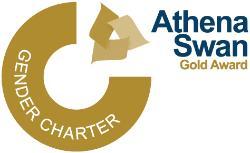"Much has been achieved but there's always more to do" 10 years of Athena Swan in Health and Wellbeing
Published: 21 September 2022
SHW director Prof Jill Pell looks back on a decade of commitment to reducing inequalities and ahead to the ongoing work of maintaining and building on positive change
SHW director Prof Jill Pell looks back on a decade of commitment to reducing inequalities and ahead to the ongoing work of maintaining and building on positive change.

It is hard to believe that we are ten years into our Athena Swan journey and, due to the hard work and commitment of many staff in Health and Wellbeing, we are about to apply for renewal of our Athena Swan gold. Whilst it is easy to criticise the Athena Swan process for being overly bureaucratic and administratively burdensome, it has nonetheless forced universities to consider and discuss gender equality, and to objectively measure their performance and monitor it over time.
NIHR making an Athena Swan silver award a condition of funding was a controversial decision but succeeded in removing the opt-out option for those universities slow to engage with the process. Similarly, Health and Wellbeing’s decision, at the beginning of our journey, to make Athena Swan workgroup membership compulsory for academic staff, might have been considered heavy-handed, but it sent a clear message that inequalities can only be reduced if the problem is owned by everyone, including those currently in a preferential position. This requirement was subsequently removed once we were sure that awareness of the importance of gender equality was embedded in our culture.
In Health and Wellbeing, we have addressed gender equality through a range of complementary approaches: culture and behaviour; career progression; work/life balance; support for parents and carers; and wellbeing and belonging. Our inclusive approach extends to all job families and all career stages. Much has been achieved over the past ten years, but there is always more to do, both in terms of Athena Swan specifically and in widening the equality, diversity and inclusion agenda beyond gender.
Who is responsible for equality – individuals or the institution? The reality is that both should own it as both stand to benefit. There is ample scientific evidence that a diverse workforce that feels valued and has equal opportunities is more productive, so it would be self-defeating for institutions not to engage. But institutions are, in reality, groups of individuals and we should all feel empowered to raise concerns and proffer suggestions. It can be hard to hear feedback, knowing that it might not be positive but, as part of our Athena Swan initiatives, Health and Wellbeing established an online feedback/suggestion box and committed to posting responses. We are also piloting multi-source feedback for all staff. We strongly believe that constructive feedback will help us, collectively and as individuals, to learn and grow. Therefore, we hope that you will continue to work with us, sharing your experiences and ideas to ensure that the School of Health and Wellbeing lives up to its label.
Professor Jill Pell
Director of School of Health and Wellbeing
Our suggestions, comments and questions box is always open...
First published: 21 September 2022


